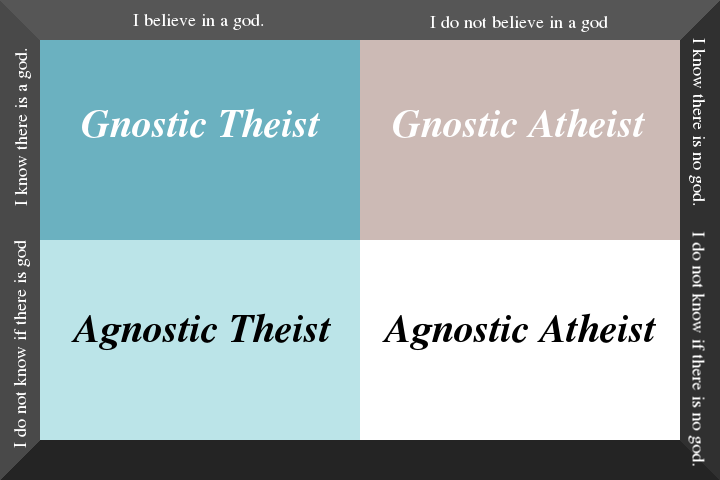How Atheism is Defined
Let's talk about what "atheism" actually is. I've been reading too many places where people don't seem to understand the concept of atheism and either throw it into the same bag as believing that there is no god, or that atheism also means belief in evolution, worship of science, and no such thing as the supernatural, someone who hates god, someone who refuses to believe in god, or that atheism is the most extreme stance and agnosticism is somewhere in between.
First, one has to study what theism is. Theism is the answer to the question, " do you believe in god?" as "yes." Theists don't make the claim they know god exists, just that they believe he does.
Second, I think it helps to understand what gnosticism is, which deals with knowledge. When one says he knows something, then his position is gnostic. It exceeds the standard of just belief and into knowledge. For the sake of simplicity, I will not delve in the epistemology, nor discuss the problem of knowing anything (solipsism), but just take knowledge as that which one is 100% sure about.
The prefix "a" in atheism is literally "not", so atheist literally means, "one who does not believe." For the question above, the atheist answers, "no."
So, a gnostic theist is one who says he believes in god and that he knows god exists. An agnostic atheist says he is unsure if a god exists, but he does not believe that a god exists. Gnosticism and theism answer two questions, the first with knowledge, the second is with belief.
Refer to the chart below to see the breakdown of what an atheist and theist believe, and what a gnostic and agnostic know.

To read the chart, the label (gnostic theist, etc.) holds the viewpoint to the left or right (whichever is closest) and the one at the top. Please note I had to change the wording on either left or right side for clarity (e.g. the gnostic theist knows god exists, whereas the gnostic atheist knows god does not exist).